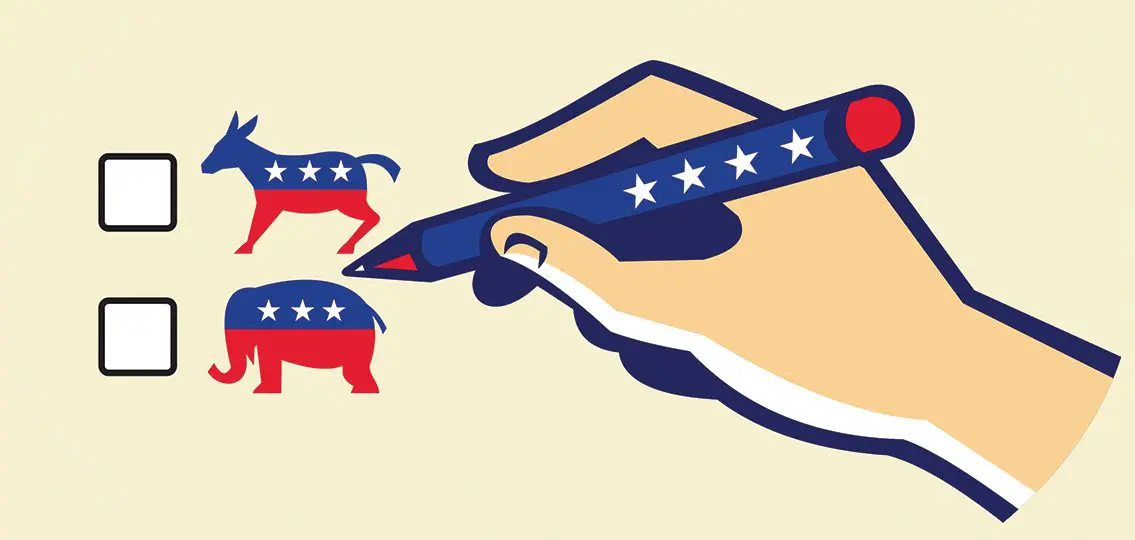Growing up, I knew from an early age that politics caused people to have heated discussions. My father, a staunch supporter of his party, was never shy about sharing his political opinions when it came to candidates, elections, and social issues. For as long as I can remember, my father could be found on the couch at exactly 6:30 pm, taking in the nightly news and commenting on the stories of the day.

It wasn’t until I was a teenager that I realized that we never really talked about the “why” behind political beliefs in my house. My father was clear on his stance, and he was more than happy to expound on his beliefs. But we never really discussed why he felt the way that he felt when it came to hot button political issues. We never talked about his sources of information or the experiences in his life that led him to feel so passionately about his chosen political party.
It was, as they say, simply what it was for my dad.
As I expanded my world knowledge and views on social issues, I often found myself challenging his political opinions, much to his annoyance.
Spoiler: My challenges often led to yelling, miscommunication, and, sometimes, hurt feelings (usually mine).
When my kids came along, I’d like to be able to tell you that I made a conscious choice to be more even keeled when it came to my opinions on politics and matters of our local community. Unfortunately, though my father and I didn’t share the same political views, I did inherit his fearlessness when it comes to holding my ground during a political discussion.
Over the years, my kids have learned exactly where I stand on candidates, social issues, and politics, largely because my husband and I discuss local politics at the dinner table most evenings, particularly during the last few years. I thought we had done a good job of explaining the “why” of our views over the years until my son and I had an uncharacteristic argument about politics a few months ago.
Our conversation-turned-argument started off innocently enough.
My Son Challenged My Political Opinions
Over dinner, I commented on a particular candidate’s stance regarding an issue that is important to me. My son looked me square in the eye and said, “But, how do you know that’s the whole truth? What research have you done about that candidate?”
He challenged me further and asked me if I’d done counter research to understand why the candidate in question believed what he did.
And then he lowered the gauntlet. “What news sources do you use to support your opinions?”
As I thought about my answer, my son looked at me expectantly. “I’m waiting, Mah,” he said with a teenage arrogance that rankled my nerves.
I answered his questions about the sites and research I’d done and the argument took off from there. He challenged my political views and he stood his ground when it came to defending his questions.
I was arguing with the teenaged version of me.
We had a heated discussion while my daughter and husband watched us lob challenges back and forth like a game of tennis. I realized that history was, in fact, about to repeat itself in my home if I didn’t stop and listen to what my son had to say.
And, in that moment, I realized that I was different than my father in one fundamental way. I didn’t need to win a political discussion with my teen. I didn’t need to be right in that moment. Did I want to be right? Of course. Did I want him to agree with me and say he carries the same values his father and I do? Absolutely.
And, it turns out, he does feel the same way we do on most issues. But he’s learning to question everything.
Raising teens in a digital age means they are savvier than we are when it comes to going down the rabbit hole of internet opinions. They read Reddit threads, they watch TikToks, and they are exposed to a much wider range of opinions than I was at that age. Throw in a 24-hour news cycle and Twitter and you have a generation of kids who have a lot of noise to sort through when it comes to developing political and social awareness.
I had the nightly news and an opinionated father.
My son was right: I have a lot to learn in terms of making sure that my views are well-sourced and unbiased.
Since our argument, I’ve worked hard to do better when it comes to political discussions. I spend more time reading about the counter arguments of a hot button issue and I make sure my kids know that my opinions are just that: mine.

And, when my son pops into the kitchen before dinner and says, “Wanna watch the news with me?” I snuggle on the couch next to him and I keep my opinions to myself. Mostly.




